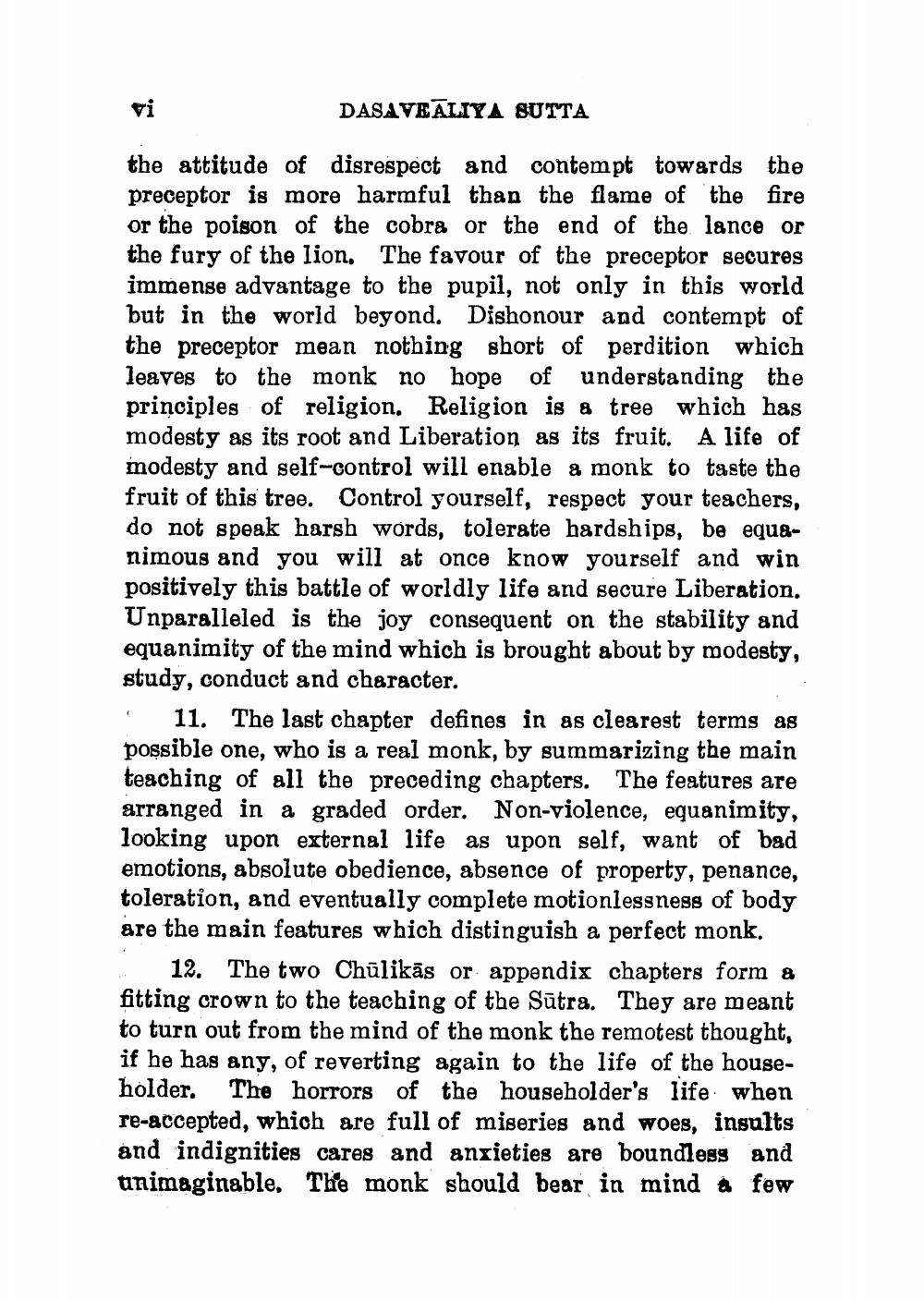________________
DASAVEĀLIYA SUTTA
the attitude of disrespect and contempt towards the preceptor is more harmful than the flame of the fire or the poison of the cobra or the end of the lance or the fury of the lion. The favour of the preceptor secures immense advantage to the pupil, not only in this world but in the world beyond. Dishonour and contempt of the preceptor mean nothing short of perdition which leaves to the monk no hope of understanding the principles of religion. Religion is & tree which has modesty as its root and Liberation as its fruit. A life of modesty and self-control will enable a monk to taste the fruit of this tree. Control yourself, respect your teachers, do not speak harsh words, tolerate hardships, be equanimous and you will at once know yourself and win positively this battle of worldly life and secure Liberation. Unparalleled is the joy consequent on the stability and equanimity of the mind which is brought about by modesty, study, conduct and character. ! 11. The last chapter defines in as clearest terms as possible one, who is a real monk, by summarizing the main teaching of all the preceding chapters. The features are arranged in a graded order. Non-violence, equanimity, looking upon external life as upon self, want of bad emotions, absolute obedience, absence of property, penance, toleration, and eventually complete motionlessness of body are the main features which distinguish a perfect monk. . 12. The two Chūlikās or appendix chapters form a fitting crown to the teaching of the Sūtra. They are meant to turn out from the mind of the monk the remotest thought, if he has any, of reverting again to the life of the householder. The horrors of the householder's life when re-accepted, which are full of miseries and woes, insults and indignities cares and anxieties are boundless and unimaginable. The monk should bear in mind a few




